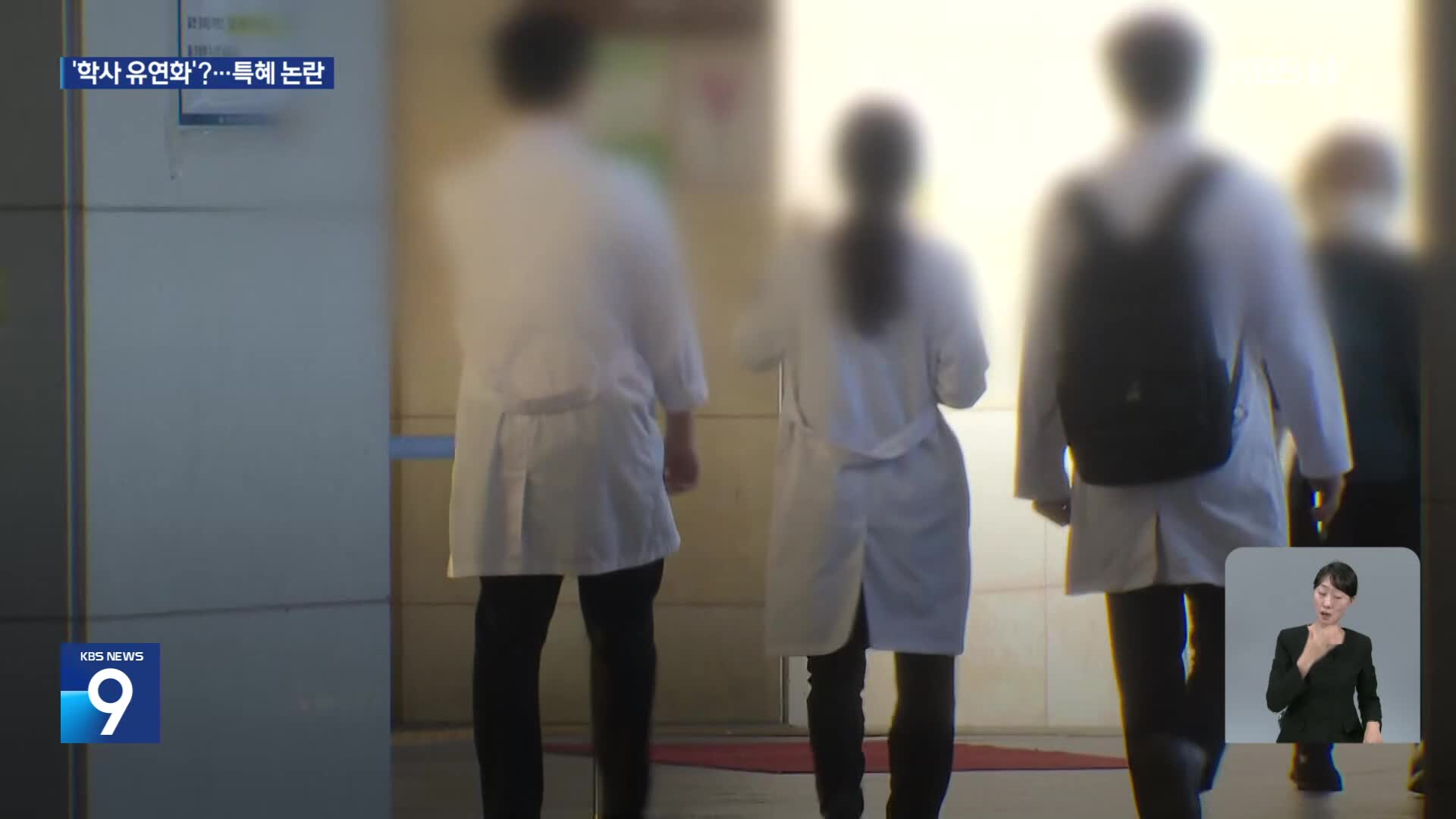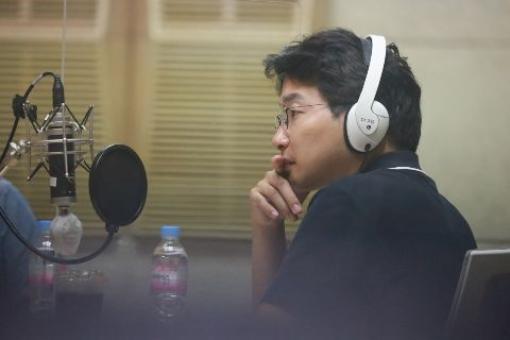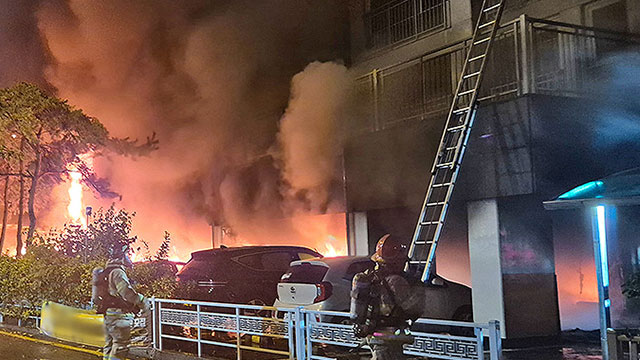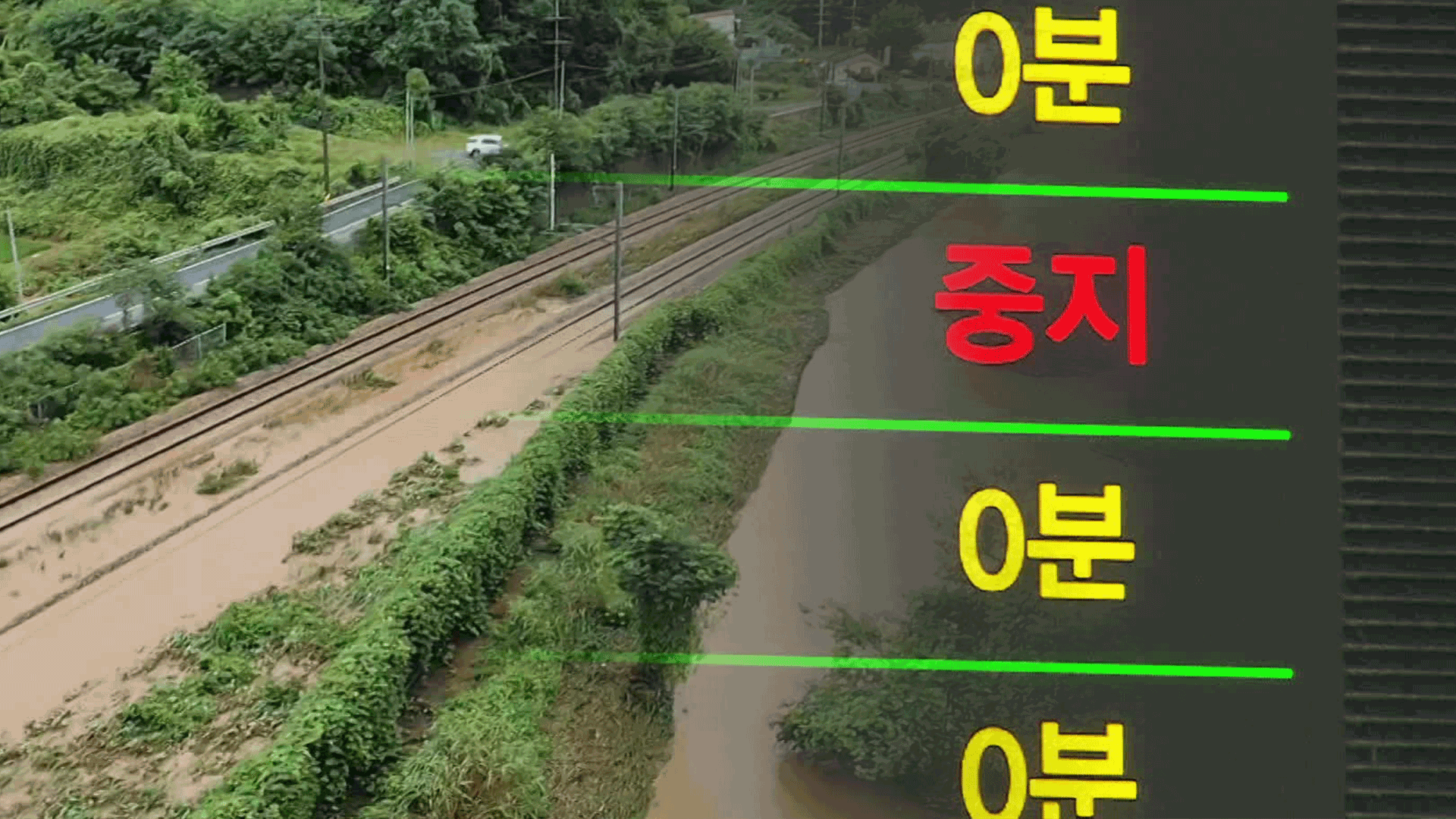[Anchor]
As the national association of medical students declared a full return to school, both the government and universities are now grappling with how to handle class schedules.
The Ministry of Education, which had previously maintained a firm stance against academic flexibility, is now showing signs of a shift—sparking growing concerns over fairness.
Jung Yeon-wook reports.
[Report]
After one year and five months, the national medical student association declared a full return, stating they were not seeking special treatment.
However, with nearly 8,000 students facing academic failure at the end of this month, the statement is widely interpreted as a call for academic flexibility.
[Lee Sun-woo / Emergency Committee Chair, Korean Medical Student Association/July 12: "By adjusting vacation periods and similar measures, there are feasible ways for students to return without causing any unfairness."]
The government, which had been pressuring students to return, is now showing signs of a subtle shift.
Education Minister nominee Lee Jin-sook responded to questions about academic flexibility for medical students by saying, "Various situations need to be reviewed comprehensively."
A Ministry of Education official also said, “It’s difficult to say definitively whether we will allow it or not.”
Under current university regulations, most students facing retention would normally return in the first semester of next year.
But if this happens, students from three different admission years—Class of 2024, 2025, and 2026—would be taking the same first-year medical classes together next year. To prevent this, school rules would need to be revised to allow students to return in the second semester of this year.
However, medical students who already returned to school are voicing concerns that normal classes will be impossible due to growing tension and online backlash.
[Returned Medical Student / Voice Altered: "It's extremely frustrating. If academic flexibility is granted, we’ll end up studying together anyway. It really feels like we’re not protected by the state at all."]
Patient advocacy groups have also stressed that the process of reinstating medical students must not involve unfair advantages.
[Ahn Sang-ho / Head, Congenital Heart Disease Patient Group: "We can't tell whether the students’ demands are acceptable to the public or simply preferential academic arrangements."]
The Citizens’ Coalition for Economic and Justice (CCEJ) warned that if the government allows academic flexibility, it could reinforce the misguided belief that "holding out" leads to victory.
This is Jung Yeon-wook, KBS News.
As the national association of medical students declared a full return to school, both the government and universities are now grappling with how to handle class schedules.
The Ministry of Education, which had previously maintained a firm stance against academic flexibility, is now showing signs of a shift—sparking growing concerns over fairness.
Jung Yeon-wook reports.
[Report]
After one year and five months, the national medical student association declared a full return, stating they were not seeking special treatment.
However, with nearly 8,000 students facing academic failure at the end of this month, the statement is widely interpreted as a call for academic flexibility.
[Lee Sun-woo / Emergency Committee Chair, Korean Medical Student Association/July 12: "By adjusting vacation periods and similar measures, there are feasible ways for students to return without causing any unfairness."]
The government, which had been pressuring students to return, is now showing signs of a subtle shift.
Education Minister nominee Lee Jin-sook responded to questions about academic flexibility for medical students by saying, "Various situations need to be reviewed comprehensively."
A Ministry of Education official also said, “It’s difficult to say definitively whether we will allow it or not.”
Under current university regulations, most students facing retention would normally return in the first semester of next year.
But if this happens, students from three different admission years—Class of 2024, 2025, and 2026—would be taking the same first-year medical classes together next year. To prevent this, school rules would need to be revised to allow students to return in the second semester of this year.
However, medical students who already returned to school are voicing concerns that normal classes will be impossible due to growing tension and online backlash.
[Returned Medical Student / Voice Altered: "It's extremely frustrating. If academic flexibility is granted, we’ll end up studying together anyway. It really feels like we’re not protected by the state at all."]
Patient advocacy groups have also stressed that the process of reinstating medical students must not involve unfair advantages.
[Ahn Sang-ho / Head, Congenital Heart Disease Patient Group: "We can't tell whether the students’ demands are acceptable to the public or simply preferential academic arrangements."]
The Citizens’ Coalition for Economic and Justice (CCEJ) warned that if the government allows academic flexibility, it could reinforce the misguided belief that "holding out" leads to victory.
This is Jung Yeon-wook, KBS News.
■ 제보하기
▷ 카카오톡 : 'KBS제보' 검색, 채널 추가
▷ 전화 : 02-781-1234, 4444
▷ 이메일 : kbs1234@kbs.co.kr
▷ 유튜브, 네이버, 카카오에서도 KBS뉴스를 구독해주세요!
- Med students return sparks debate
-
- 입력 2025-07-15 03:04:52

[Anchor]
As the national association of medical students declared a full return to school, both the government and universities are now grappling with how to handle class schedules.
The Ministry of Education, which had previously maintained a firm stance against academic flexibility, is now showing signs of a shift—sparking growing concerns over fairness.
Jung Yeon-wook reports.
[Report]
After one year and five months, the national medical student association declared a full return, stating they were not seeking special treatment.
However, with nearly 8,000 students facing academic failure at the end of this month, the statement is widely interpreted as a call for academic flexibility.
[Lee Sun-woo / Emergency Committee Chair, Korean Medical Student Association/July 12: "By adjusting vacation periods and similar measures, there are feasible ways for students to return without causing any unfairness."]
The government, which had been pressuring students to return, is now showing signs of a subtle shift.
Education Minister nominee Lee Jin-sook responded to questions about academic flexibility for medical students by saying, "Various situations need to be reviewed comprehensively."
A Ministry of Education official also said, “It’s difficult to say definitively whether we will allow it or not.”
Under current university regulations, most students facing retention would normally return in the first semester of next year.
But if this happens, students from three different admission years—Class of 2024, 2025, and 2026—would be taking the same first-year medical classes together next year. To prevent this, school rules would need to be revised to allow students to return in the second semester of this year.
However, medical students who already returned to school are voicing concerns that normal classes will be impossible due to growing tension and online backlash.
[Returned Medical Student / Voice Altered: "It's extremely frustrating. If academic flexibility is granted, we’ll end up studying together anyway. It really feels like we’re not protected by the state at all."]
Patient advocacy groups have also stressed that the process of reinstating medical students must not involve unfair advantages.
[Ahn Sang-ho / Head, Congenital Heart Disease Patient Group: "We can't tell whether the students’ demands are acceptable to the public or simply preferential academic arrangements."]
The Citizens’ Coalition for Economic and Justice (CCEJ) warned that if the government allows academic flexibility, it could reinforce the misguided belief that "holding out" leads to victory.
This is Jung Yeon-wook, KBS News.
As the national association of medical students declared a full return to school, both the government and universities are now grappling with how to handle class schedules.
The Ministry of Education, which had previously maintained a firm stance against academic flexibility, is now showing signs of a shift—sparking growing concerns over fairness.
Jung Yeon-wook reports.
[Report]
After one year and five months, the national medical student association declared a full return, stating they were not seeking special treatment.
However, with nearly 8,000 students facing academic failure at the end of this month, the statement is widely interpreted as a call for academic flexibility.
[Lee Sun-woo / Emergency Committee Chair, Korean Medical Student Association/July 12: "By adjusting vacation periods and similar measures, there are feasible ways for students to return without causing any unfairness."]
The government, which had been pressuring students to return, is now showing signs of a subtle shift.
Education Minister nominee Lee Jin-sook responded to questions about academic flexibility for medical students by saying, "Various situations need to be reviewed comprehensively."
A Ministry of Education official also said, “It’s difficult to say definitively whether we will allow it or not.”
Under current university regulations, most students facing retention would normally return in the first semester of next year.
But if this happens, students from three different admission years—Class of 2024, 2025, and 2026—would be taking the same first-year medical classes together next year. To prevent this, school rules would need to be revised to allow students to return in the second semester of this year.
However, medical students who already returned to school are voicing concerns that normal classes will be impossible due to growing tension and online backlash.
[Returned Medical Student / Voice Altered: "It's extremely frustrating. If academic flexibility is granted, we’ll end up studying together anyway. It really feels like we’re not protected by the state at all."]
Patient advocacy groups have also stressed that the process of reinstating medical students must not involve unfair advantages.
[Ahn Sang-ho / Head, Congenital Heart Disease Patient Group: "We can't tell whether the students’ demands are acceptable to the public or simply preferential academic arrangements."]
The Citizens’ Coalition for Economic and Justice (CCEJ) warned that if the government allows academic flexibility, it could reinforce the misguided belief that "holding out" leads to victory.
This is Jung Yeon-wook, KBS News.
-
-

정연욱 기자 donkey@kbs.co.kr
정연욱 기자의 기사 모음
-
이 기사가 좋으셨다면
-
좋아요
0
-
응원해요
0
-
후속 원해요
0















이 기사에 대한 의견을 남겨주세요.